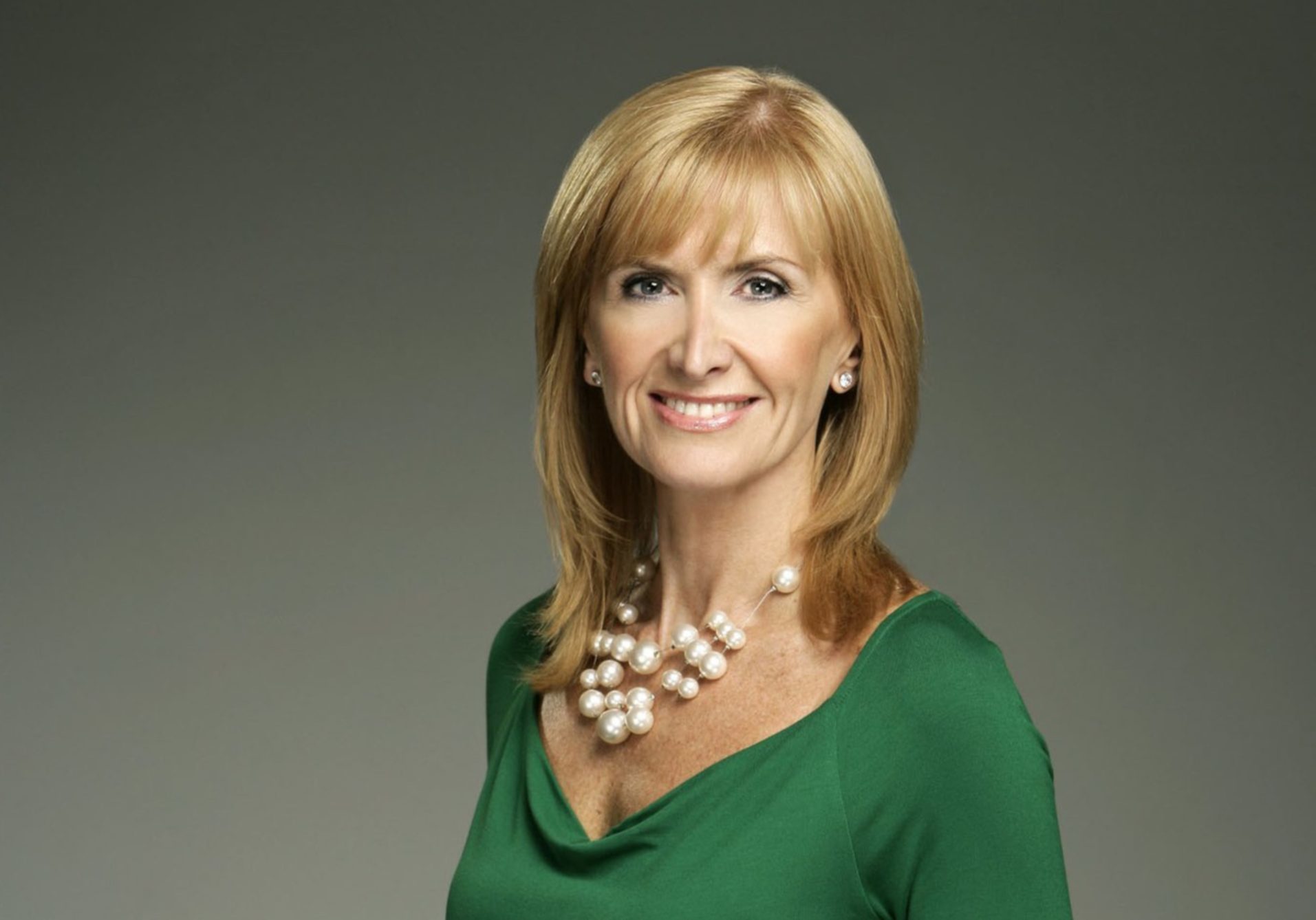Jackie Bird always looks very pleased when presenting the BBC’s 6.30pm news bulletin – perhaps because unlike the audience, she doesn’t have to watch it
Bird’s beaming grin is about the only memorable part of BBC Scotland’s 6.30pm news, a programme which suffers from being dull.
As it ploughs methodically through crime reports and media release stories, the viewer may lose the will to live.
Campaigners had hoped it would become essential viewing if it covered international news too, and so asked for a “Scottish Six”.
This began back in the 1990s when TVs were the size of small cars and people dreamed of devolution.
The BBC has finally decided on an answer to this request, and it is no.
Instead the corporation announced a Scottish Nine and a whole new TV channel dedicated to Scotland as well as a new radio station – one for music and one for speech (again, a request as old as the transmitters).
The news from the Beeb upset campaigners for a Scottish Six – as if they’d been told they couldn’t have the slice of cake they wanted.
Campaigner: But I want that slice.
BBC: You can have this slice.
C: No, that one.
B: Look, the slices are all the same.
C: I asked for that one, I want that one.
B: It’s not very nice cake anyway.
C: I don’t care.
Objecting to whether it’s at 6pm or 9pm is quite baffling to anyone from the 21st Century.
The number of people who watch the news at a fixed hour in the evening is falling.
In fact, the number of people who watch any form of edited news programme is declining.
That is because in this century we are all editors.
If you want a mix of national and international news, then you buy a paper, listen to the radio and click away – in minutes you’ll get what you want.
Not only that, but getting your news online will also allow you to view “15 celebrity faces that have aged really badly” – we all know its wrong, but who doesn’t give in?
It is very odd that Nationalists in particular are fixated on the 20th Century idea of a single programme, broadcast at a fixed time, curated by a single person (probably a white man) sitting in Pacific Quay in Glasgow.
This idea made sense before Google, but became redundant sometime in the early 2000s.
It’s as odd as the Nat obsession that the BBC in Scotland is biased.
A lifetime in journalism and politics leaves me in no doubt that Brian Taylor, Colin Blane, Alan Little, James Cook, Bill Whiteford, Isabel Fraser and Douglas Fraser are models of careful, interesting journalists.
Yet a dollop of chippiness topped off by the stupid decision to send correspondents up from London to cover the dying days of Indyref1 has led to many Scots doubting the whole operation.
BBC Scotland’s problem is that it is underfunded and often dull.
Boring is a bias in itself, a bias against an entire subject by making people turn away.
The BBC makes Scotland look predictable – in my experience this has been because managers starved good journalists of funds or support.
It has not always been this way – BBC Radio Scotland won station of the year in 1995 because a clever leader in James Boyle showed confidence in Scotland.
But the trend has been for budget cuts and safe editorial choices.
Where are the original stories dug up by an investigations unit?
Where the documentary unit which finds Scottish life interesting without mentioning kilts or heroin?
Which is why the BBC decision for a new channel is great news – not because it’s a channel but for the £30 million in new money.
Hopefully the utterly predictable Good Morning Scotland on BBC Radio will get enough money to pay for a proper production team but spend the rest on investigating this country whether for TV, online or radio.
It means more journalists, more producers, more money for ideas.
Money allows people time to develop good ideas and to execute them to an intelligent standard – there are good examples in the series The Mart or the upcoming history of childhood in Scotland.
We need eager hacks to pore over the actions of our public bodies and the governing class to expose the corruption and mendacity.
Scotland’s lack of self-confidence, if such a thing really exists, is not because Scots don’t travel the world and report back – they do, just listen to the BBC’s output right now – it’s because they don’t take their home turf seriously.
The world of TV schedules and appointment viewing is dead but the need for clever and funny programmes about Scotland has never been greater.
They say the unexamined life is not worth living.
Well, the unexamined nation is never going to have self-worth if we don’t take it seriously, and the first step in that process is good journalists with proper budgets being allowed to do their jobs without political interference.
Good journalism is the bedrock of democracy – any investment should be welcomed.


